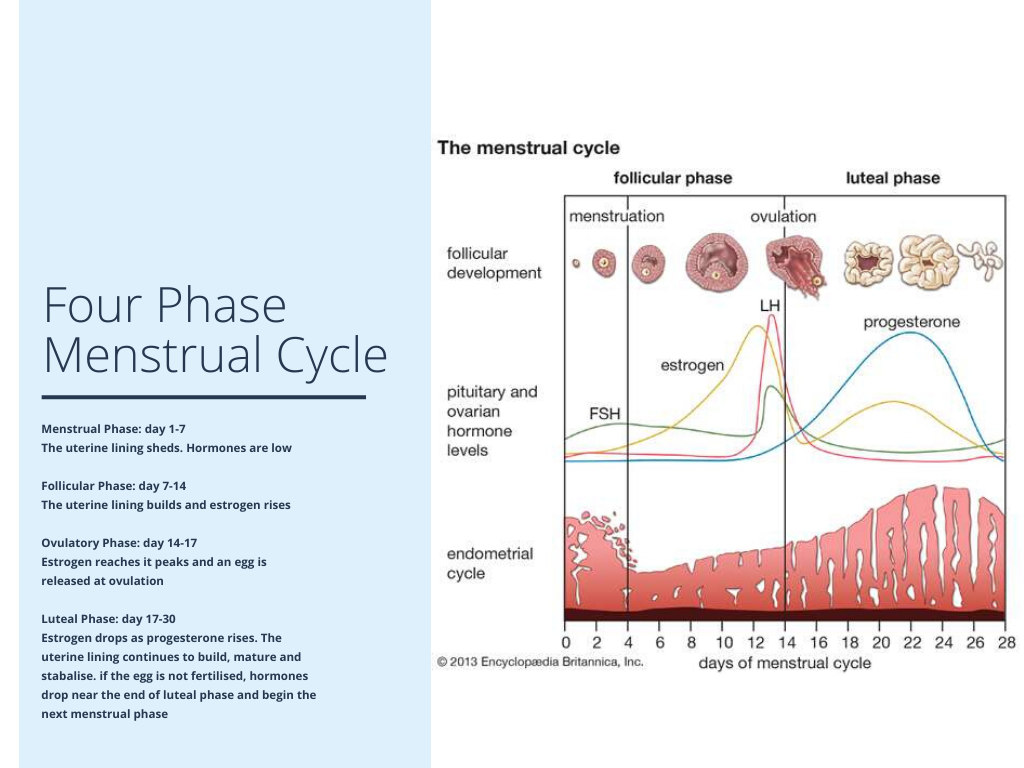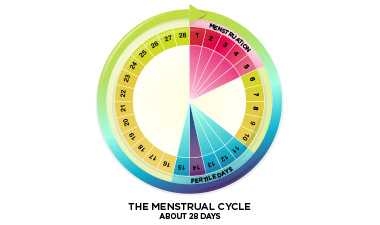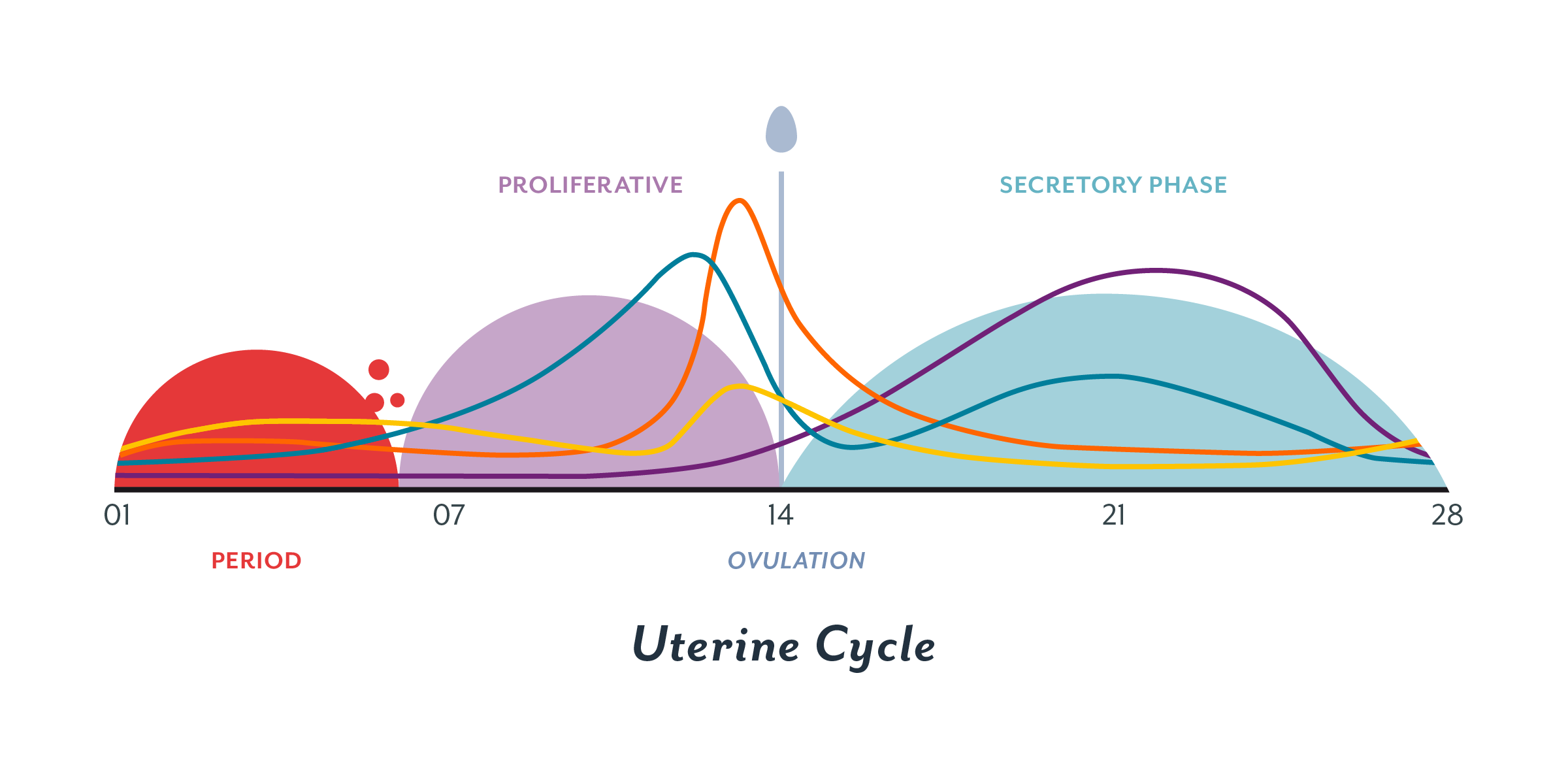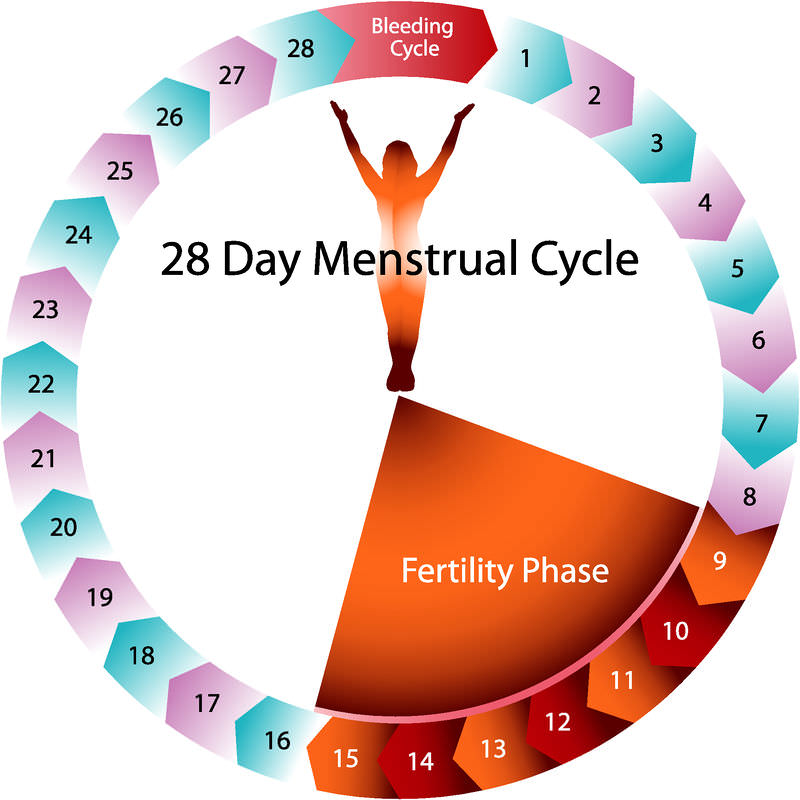- Get link
- X
- Other Apps
Menstruation also known as a period and many other colloquial terms is the regular discharge of blood and mucosal tissue from the inner lining of the uterus through the vaginaMenstruation is the cyclical shedding of the lining and is triggered by falling progesterone levels. 6132019 The menstrual cycle is the monthly series of changes a womans body goes through in preparation for the possibility of pregnancy.
 Understanding The Menstrual Cycle Hazel Cacao
Understanding The Menstrual Cycle Hazel Cacao
A period is a release of blood from a girls uterus out through her vagina.

What is a menstrual cycle. It is a sign that pregnancy has not occurred. The lining of the uterus builds up. Your hormone levels estrogen and progesterone usually change throughout the menstrual cycle and can cause menstrual symptoms.
Irregular or heavy painful periods are not normal. Your menstrual cycle is counted from the first day of your period up to the first day of your next period. Girls can start their periods anywhere from age 10 upwards but the average is around 12 years.
Your period should have become regular and predictable by this time. 5202020 The menstrual cycle is a series of regular natural changes in the body. 8172018 This series of hormone-driven events is called the menstrual cycle.
3162018 The menstrual cycle is the monthly hormonal cycle a females body goes through to prepare for pregnancy. The length of time from the first day of one period to the first day of the next period normally ranges from 21-35 days. In other words the first day of the menstrual cycle is the first day of your period.
It is a sign that she is getting close to the end of puberty. Regular menstrual periods in the years between puberty and menopause are usually a sign that your body is working normally. 8252020 Your menstrual cycle in your 20s and early- to mid-30s.
The cycle is repeated roughly every twenty-eight days. The menstrual cycle refers to the regular changes in the activity of the ovaries and the endometrium that make reproduction poss. Each month one of the ovaries releases an egg a process called ovulation.
What is the menstrual cycle. The periodic series of changes in the female reproductive system associated with the preparation of the uterus for pregnancy. Here are some common questions that teens have.
Eighty percent of cycles occur within 21 to 45 days. The menstrual cycle has two main phases. How does the menstrual cycle work.
There is a lot to learn about periods. The menstrual cycle is the time from the first day of a womans period to the day before her next period. During each menstrual cycle an egg develops and is released from the ovaries.
The average menstrual cycle lasts 28 days when counting from the first day of one cycle to the first day of the next cycle. The length of a menstrual cycle is determined by the number of days from the first day of one period to the first day of the next. The menstrual cycle is controlled by a complex orchestra of hormones produced by two structures in the brain the pituitary gland and the hypothalamus along with the ovaries.
The menstrual cycle occurs due to the rise and fall of hormones. Says Toni Belfield a specialist in sexual health information and a trained fertility awareness teacher. Typically cycles will last two to seven days.
The menstrual cycle is the hormonal process a womans body goes through each month to prepare for a possible pregnancy. At the same time hormonal. 10132020 The menstrual cycle is the 28-day cycle in the reproductive period of a womans life.
Each cycle extends from the first day of bleeding during menstruation to.
 Menstrual Cycle Basics Your Period
Menstrual Cycle Basics Your Period
 The Menstrual Cycle Phases Of Your Cycle
The Menstrual Cycle Phases Of Your Cycle
 Menstrual Cycle Women S Health Issues Msd Manual Consumer Version
Menstrual Cycle Women S Health Issues Msd Manual Consumer Version

 Diagram Of Hormonal Fluctations In The Menstrual Cycle Notes Day 0 Of Download Scientific Diagram
Diagram Of Hormonal Fluctations In The Menstrual Cycle Notes Day 0 Of Download Scientific Diagram
 Menstrual Cycle Irregular Periods Infertility Treatment
Menstrual Cycle Irregular Periods Infertility Treatment
 What Is Menstruation How Does The Menstrual Cycle Work Anigan
What Is Menstruation How Does The Menstrual Cycle Work Anigan
 The Menstrual Cycle Vios Fertility Institute
The Menstrual Cycle Vios Fertility Institute
 Menstrual Cycle An Overview Sciencedirect Topics
Menstrual Cycle An Overview Sciencedirect Topics





Comments
Post a Comment